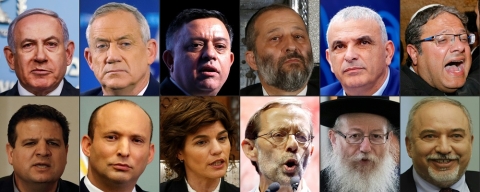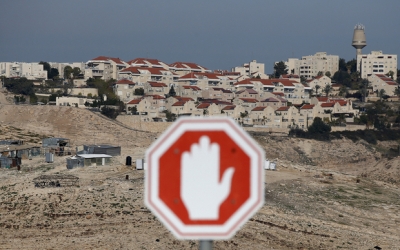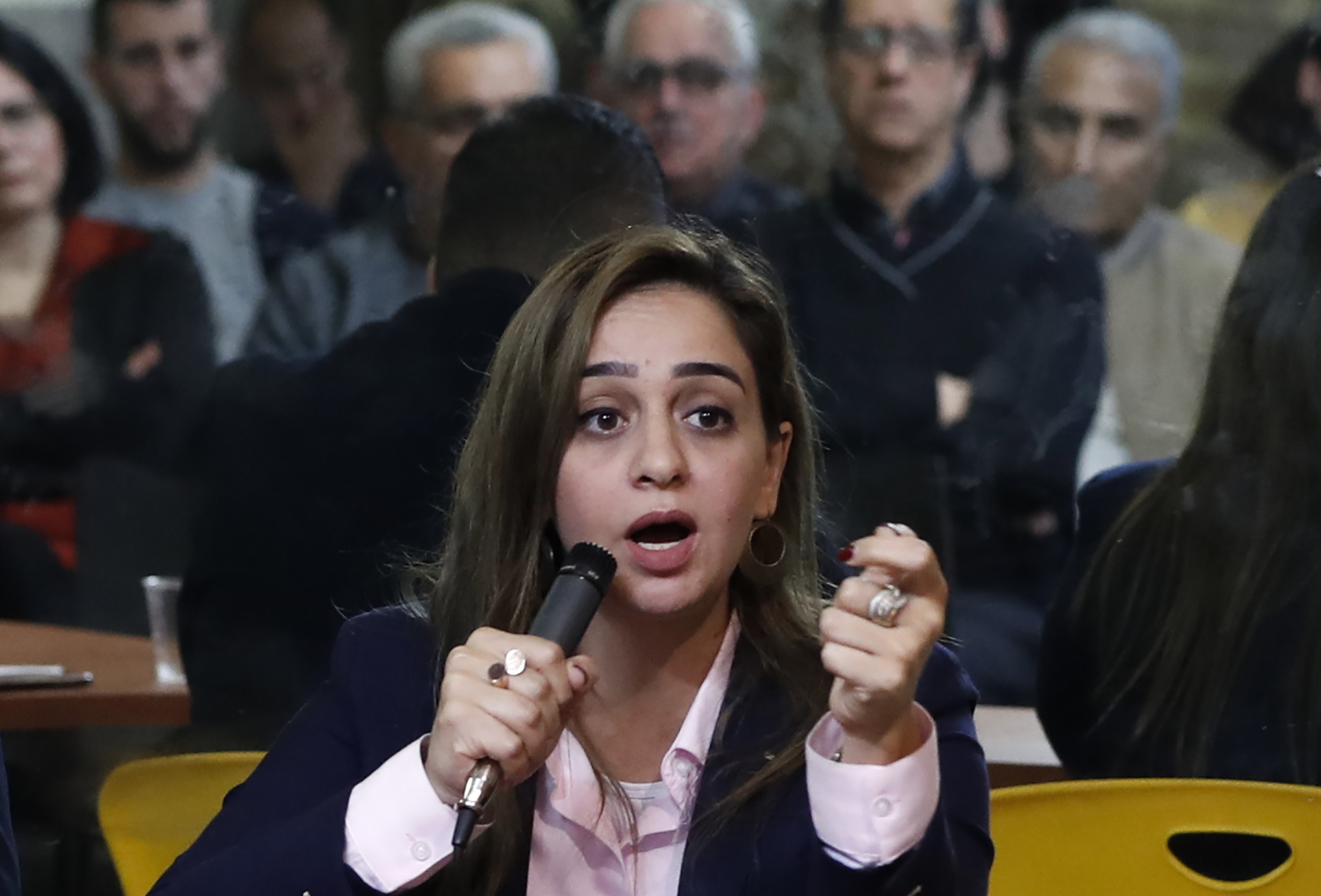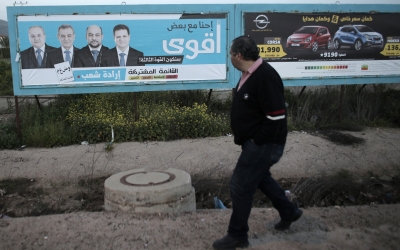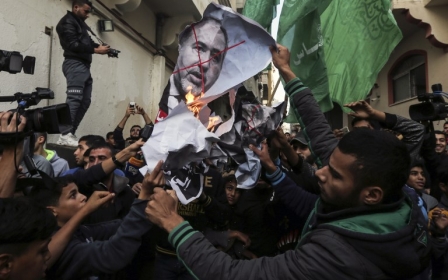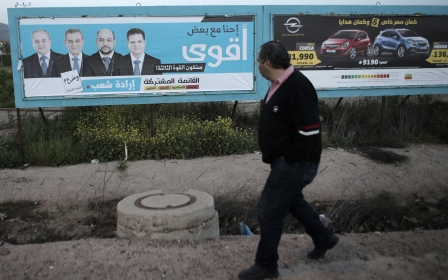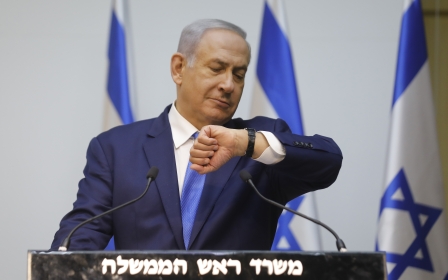Palestinians should boycott the Israeli elections
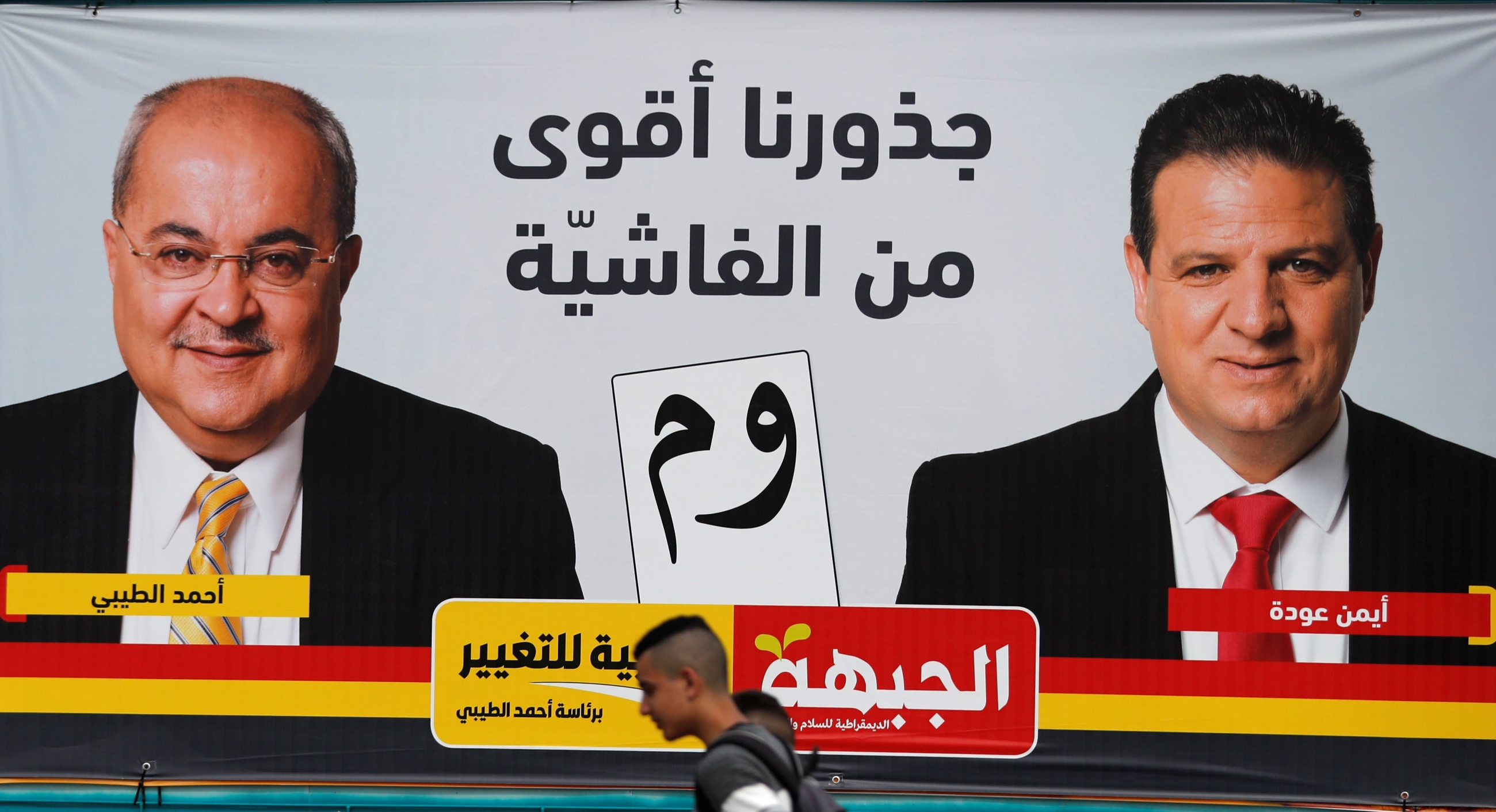
Palestinian citizens of Israel recently launched a campaign calling for the boycott of the Israeli general elections on 9 April. It appears to be working: a new survey predicts an all-time low in voter turnout among the target demographic.
While some analysts bemoan the boycott, arguing that participation at the polls is the only way to effect political change, election boycotts must be understood as a dynamic political tool used to convey dissatisfaction and disaffection among an electorate.
A political tool
Palestinian citizens of Israel follow the legacy of other oppressed groups that have used abstention or the casting of blank ballots as an expression of rejection.
For example, black South Africans who fought for their liberation from apartheid also did not pursue inclusion within the system, but rather sought to dismantle it and create a new, just, and fair one.
New MEE newsletter: Jerusalem Dispatch
Sign up to get the latest insights and analysis on Israel-Palestine, alongside Turkey Unpacked and other MEE newsletters
Palestinian citizens of Israel follow the legacy of other oppressed groups that have used abstention or the casting of blank ballots as an expression of rejection
The Palestinian campaign follows a similar ideological stance in that it refuses the legitimacy of Israel’s apartheid regime.
It states that the elections serve to bolster the image of Israel as a democracy, while in fact Israel oppresses and disenfranchises its indigenous Palestinian inhabitants, which comprise one-fifth of the state’s population.
At least 65 laws indirectly or directly discriminate against and target Palestinians in all areas of life, including the "Nakba Law", which allows the Israeli finance minister to reduce or withdraw funding from any institution that marks Israeli Independence Day as a day of mourning.
Tip of the iceberg
Moreover, Israeli electoral law states that a party rejecting the existence of the state of Israel as Jewish and democratic is prohibited from running. It means that those who wish to run on a platform of constitutional equality for all citizens, Jewish and non-Jewish, are prevented from doing so.
How do Israeli elections work?
+ Show - HideIsraelis will head to the polls on 9 April to elect candidates to its 120-seat parliament, the Knesset. It will be the second election in just four years, after under-pressure Prime Minister Benjamin Netanyahu called early polls.
Voters will vote for parties, not individual candidates; the more votes a party gets, the more Knesset seats. Click here for profiles of the parties and the candidates.
Since no single party has ever captured more than the 60-seat threshold to form a government on its own, coalitions are an established part of political life. This makes Israel’s election a free for all, with some 47 parties competing this year alone. Parties must receive at least 3.25 percent of the popular vote in order to gain a seat in the Knesset.
After the election, Israel’s president will consult with party leaders to determine which coalition is most likely to form a stable government. The president will also nominate the prime minister, who is usually the head of the party that won the most seats.
This is only the tip of the iceberg when it comes to institutionalised discrimination against Palestinian citizens of Israel. While over 750,000 Palestinians were expelled from the borders of the newly-established state of Israel in 1948, 150,000 Palestinians remained and were placed under martial law for nearly 20 years.
Then and since, they have been ghettoised and segregated from the Israeli Jewish population, not only to prevent integration and assimilation but also so that resources could be disproportionality distributed to Jewish citizens.
Yet this group and their descendants have historically been a politically active community. In the 1950s and 1960s, voter turnout among them was as high as 90 percent, with the aim of making as many political gains as possible in the hope that full and equal citizenship could be achieved.
In the 1990s, the Abnaa al Balad movement began organising calls to boycott the Knesset elections in response to Israeli military attacks in southern Lebanon.
In the 2001 elections, voter turnout plunged to 18 percent to protest the events of October 2000, when Israeli soldiers gunned down 13 Palestinians protesting peacefully in the streets, 12 of whom were Israeli citizens. Of that 18 percent, a third cast blank ballots.
No significant gains
History also shows that the Palestinian citizens of Israel have not made any significant gains within the Israeli political system. While some Palestinians have achieved senior positions in Israeli institutions, including a judge on the Supreme Court and an ambassador, their cases are exceptions that prove the rule.
The passing of the nation-state law in 2018, which declares that in Israel "the right to exercise national self-determination" is “unique to the Jewish people” and confirms "Jewish settlement as a national value", as well as recent comments by Israeli Prime Minister Benjamin Netanyahu on how Israel is a state "only of the Jewish people", also affirm the subjugation of Palestinian citizens.
Unlike the international community, many Palestinians were not shocked by the law or Netanyahu’s comments, as they simply confirmed what is already in place in order to appease the growing Israeli right.
However, the law and comments did highlight more than ever that Palestinians will never be considered equal citizens of the state, particularly while Israel’s separation between citizenship and nationality allows for discrimination against non-Jews.
Failure of political representation
The nation-state law also highlighted a failure of the political representation of the Palestinian community inside Israel. The Arab Joint List, which formed in 2015 to become the third-largest party in the Knesset, failed to muster a strong response.
Several Palestinian Knesset members boycotted parliament for a short period, and others led the rally against the law in Tel Aviv, but the protests were generally short lived.
This would have been a perfect opportunity for the political leadership to develop a joint strategy; they could have, for example, collectively refused to sit in the Knesset but continued to run in the elections to maintain their electoral mandate.
Then, earlier this year the Joint List dissolved, a reflection of an internal struggle of egos within the various parties. Many Palestinian citizens have been bitterly disappointed by the Joint List, and the realisation that they cannot achieve much within the current political system is taking hold.
Oppresive structure
This year’s racist and bigoted televised campaigns, which have included Jewish candidates dressing up as “Arabs”, as well as portraying themselves killing Palestinian politicians, including a Knesset member and Palestinian Authority President Mahmoud Abbas, further confirm that the elections do not provide any source for hope or possibility for Palestinians.
It is clear that a new political strategy outside of the Israeli institutional system must be pursued. It has never been timelier for Palestinian citizens to demand that their political leadership reject the structure that has oppressed them for more than 70 years.
The boycott campaign offers the opportunity to mobilise and open space for discussions that should ideally be centred around the creation of new political representation, one that revives a strategy of liberation, and reconnects the Palestinian political goals in Israel with the Palestinians in the West Bank, Gaza Strip, and the diaspora.
Such discussions could contribute to changing the discourse on who and what Palestine is, paving the way for Palestinians across all fragmented geographies to unite and demand the fulfillment of their quest for self-determination and human rights.
The views expressed in this article belong to the author and do not necessarily reflect the editorial policy of Middle East Eye.
Middle East Eye delivers independent and unrivalled coverage and analysis of the Middle East, North Africa and beyond. To learn more about republishing this content and the associated fees, please fill out this form. More about MEE can be found here.



